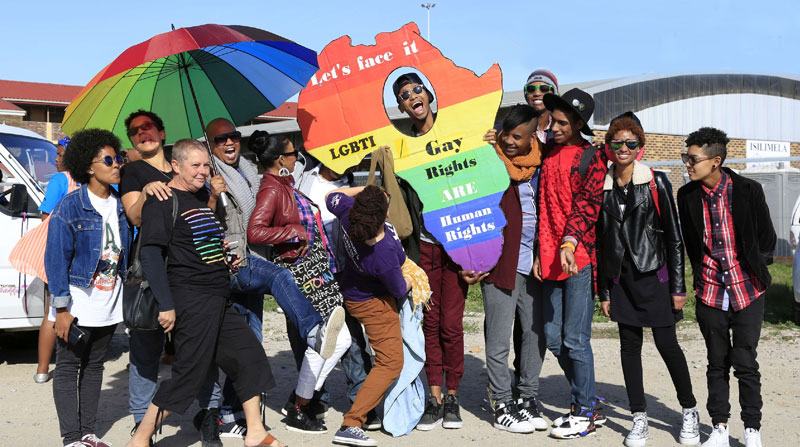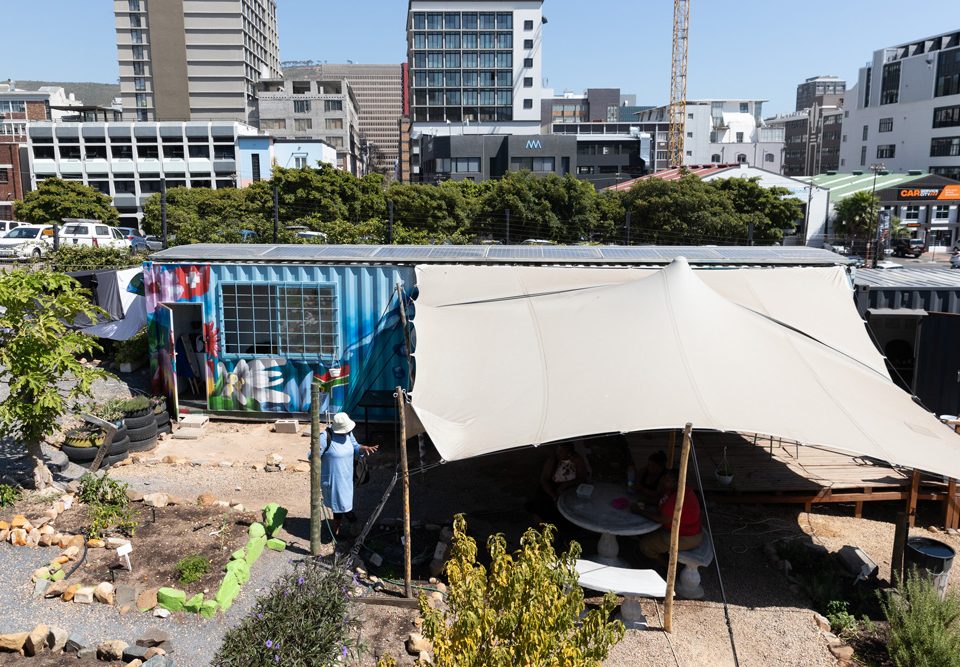
What’s driving miss Lira?
September 28, 2016
Mass poisoning in Limpopo National Park
October 12, 2016
[dc]Gay rights activists in Cape Town have put a ‘face’ – 1 000 of them to be exact – to their fight for equality and tolerance in Africa. Faces include religious and political heavyweights like Archbishop Desmond Tutu and the Deputy Minister of Justice and Constitutional Development, John Jeffrey.[/dc]
The “Let’s Face It” campaign kicked off outside parliament on Human Rights Day to garner support for anti-hate crimes legislation put before government by Minister Jeffrey. More recently, it has also sought to bring attention to South Africa’s decision to abstain from a United Nations’ vote that would protect the rights of those who are gay, lesbian, bisexual, transgender or intersex (LGBTI).
This put South Africa in a “neutral” rather than leadership role on these issues, said Neil Goodwin, Human Rights Officer for the Scalabrini Centre. The Cape Town-based NGO is spearheading the photo project and works with refugees and asylum seekers who are persecuted because of their sexual orientation.
“Our campaign… comes at a time when crucial hate crime legislation is being drafted in parliament to outlaw hate crimes, including those carried out against the LGBTI community,” Goodwin said, referencing the so-called ‘corrective’ rapes and targeted violence often experienced by gay, lesbian or transgender Africans.
In just over a month, Scalabrini Centre representatives have taken close to 1 000 photographs of South Africans who support gay rights as universal human rights. Each of the 1 000 supporters have been pictured with a rainbow-coloured Africa map cut-out which asks passersby if they think being gay is “un-African”.
The view that homosexuality is a product of Western colonisers – and contrary to African traditions and culture – is a pervasive misconception on the continent, explained Goodwin.
Some of the myths and fears surrounding issues of gender and sexual orientation were slowly being overcome, thanks in part to pop-up pride awareness campaigns, he said.
“From Gugs to Langa and all over the CBD, the response [to the campaign] has been fantastic. The sheer range of people from all over South Africa and Africa has been extremely positive, capturing the very diversity we have sought to champion.”
Archbishop Desmond Tutu has lent his weight to the campaign as its 1 000th face. The Nobel Peace Prize laureate was quoted in 2013 as saying he’d rather go to hell than worship a homophobic God.
“I would refuse to go to a homophobic heaven. No, I would say ‘sorry’, I mean I would much rather go to the other place.”
But whose photo-op could be more elusive to secure than Tutu’s? A senior police officer in uniform, said Goodwin – it’s his newest goal for face #1 001.
The campaign has been on the streets about once a week since Human Rights Day and the positive response from the public had not been entirely surprising, said Goodwin – the country was the first (and only) country in Africa to legalise gay marriage and has long been an asylum for LGBTI refugees. South Africa’s constitution was also first in the world to recognise LGBTI rights when it was adopted in 1996.
In more than 30 African countries, it’s still illegal to engage in any kind of same-sex sexual act. In places like Sudan and Nigeria, the death penalty is still on the book, although none have been executed in recent years.




